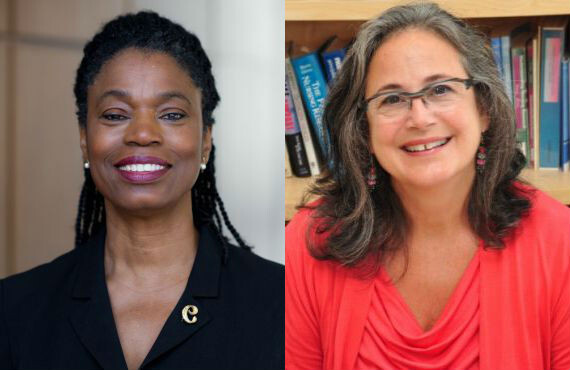National Academy of Medicine Elects Two New Members From Penn
Two University of Pennsylvania faculty have been elected to the National Academy of Medicine, formerly the Institute of Medicine: Anita Allen, vice provost for faculty with appointments in the Law School and the School of Arts & Sciences, and Martha A. Q. Curley, the Ellen and Robert Kapito Professor in the School of Nursing and a professor of anesthesia and critical care medicine in the Perelman School of Medicine.
They join 77 others in the 2016 class selected for their “outstanding professional achievement and commitment to service” and for making “major contributions to the advancement of the medical sciences, health care and public health.”
Allen, the Henry R. Silverman Professor of Law and Philosophy, is an expert on privacy law, the philosophy of privacy, bioethics and contemporary values. She has been recognized for her scholarship on legal philosophy, women’s rights and race relations. In 2010, President Obama appointed her to the Presidential Commission for the Study of Bioethical Issues. She has written extensively on these issues, including more than 100 scholarly articles and the books Unpopular Privacy: What Must We Hide, The New Ethics: A Guided Tour of the 21st Century Moral Landscape and Why Privacy Isn’t Everything: Feminist Reflections on Personal Accountability, among others.
Of this year’s newly elected members, Allen is the sole law professor. At least one-quarter of the organization’s membership comes from fields outside of the health professions such as law, engineering, social sciences and the humanities.
Curley is a leading clinical researcher in nurse-implemented therapies for acute respiratory failure in critically ill pediatric patients. She has served as the principal investigator on several major clinical trials in pediatric critical care and actively mentors scientists through leadership in the Pediatric Acute Lung Injury and Sepsis Investigator network and the World Federation of Nurse Scientists in Pediatric Critical Care.
Currently, Curley studies how nurses can create pediatric ICU environments conducive to healing through methods like better support of parents, incorporating a child’s normal sleep patterns into a hospital stay and modulating the floor’s light and noise to comfort children. Curley also helped develop a patient-care model that bases nursing care on the needs of patient and family, one now integrated into many nursing curricula and credentialing programs.








